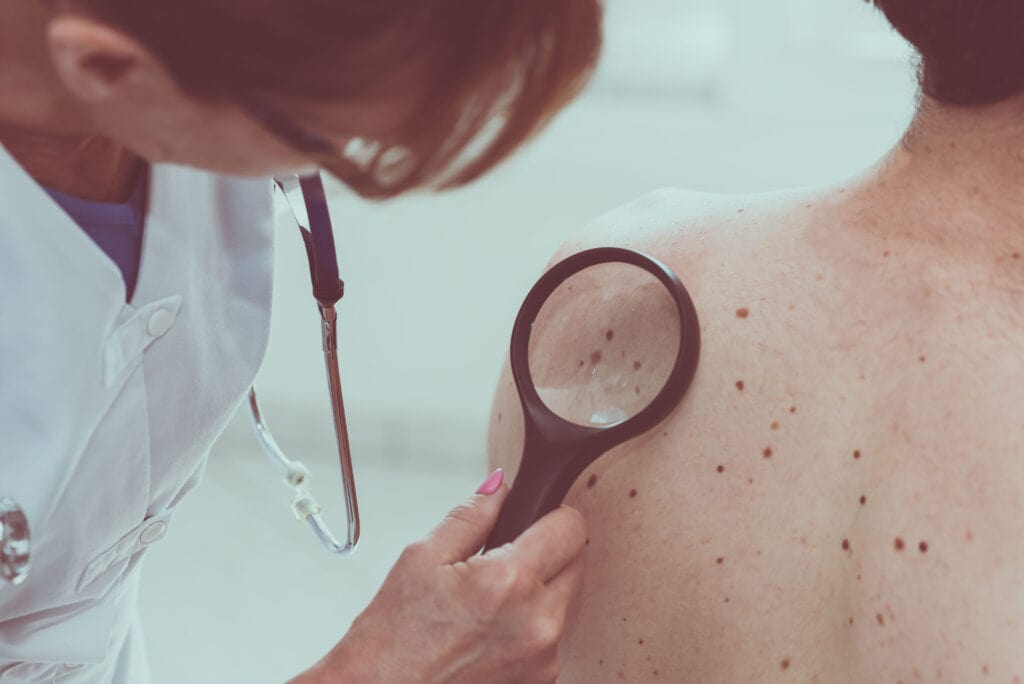03.09.2020
How does the sun affect our skin?

The sun is a source of vitamin D, good mood and pleasant associations for everyone. Scientifically, sun rays have a triform of the radiance: 1.) what we can see – sunlight; 2.) that warms us – radiant heat; 3.) that makes us tanned – ultra-violet rays.
UV radiation is divided in three spectrums, which influence a human body differently depending on the length. The abundance of ultra-violet rays can cause photoaged skin and melanoma skin cancer.
Excess of ultra-violet rays leads to increase of atypical skin cells and then cancerous tumour formation. Sun rays impact melanin production in cells and moles formation. Moles can transform into melanoma cancerous growth. Consequently, the systematic monitoring of moles state under dermatologist’s care – is the essential measure throughout life.
Typically, cancer cells are formed on the skin area that is directly exposed to the sun’s radiation (face, hands, neck).
The responsible consumption of sun rays – is a priority task for maintaining your health. Skin is the largest human body organ that plays the role of the main defender with UV radiation. Our mission is to maintain skin and we can make it with a help of sunscreen use.
Everybody has own skin type and depending on it, a level of sensitivity and skin protection.
There are 6 phototypes according to Fitzpatrick scale:
1. Celtic – people who have the pale white skin, light-colored,blue eyes, blond or red hair, also freckles.
2. European. This kind of people have pale white skin and blondish, chestnut hair. Their eyes are blue, grey or green.
3. Dark European. People have pale white skin, brown eyes and chestnut hair.
4. Mediterranean. These kind of people have light brown skin with olive gradation, dark hair and dark eyes.
5. Middle Eastern – dark eyes, dark hair and brown skin naturally.
Thereafter, people with the 5th skin phototype are prone to sunburns by constart with those who have the 1st phototype. But everybody needs the sunscreen without exception whatever the skin phototype is.
There is a misbelief that you have to use sunscreen only while staying at the beach. But it is the myth as our skin is vulnerable to the sun the whole year and during cloudy days.
The face requires regular protection from the constant direct sunlight. Thus, the use of separate face cream is a necessary step to self-care. That’s why we recommend: pay attention to SPF factor as part of facial care products.
SPF is a marker of sun protection. For instance, SPF 50 demonstrates the UV radiation range you can have without the risk of sunburn. So, your skin will be protected from UV rays 50 times better with SPF 50 Sun Energy.
Doctors recommend not to ignore sunscreen even in cloudy days and to renew the protection layer each two hours. You will also help the skin by avoiding direct sunlight from 11 a.m. till 4 p.m. and by covering the body with thick fabric.
